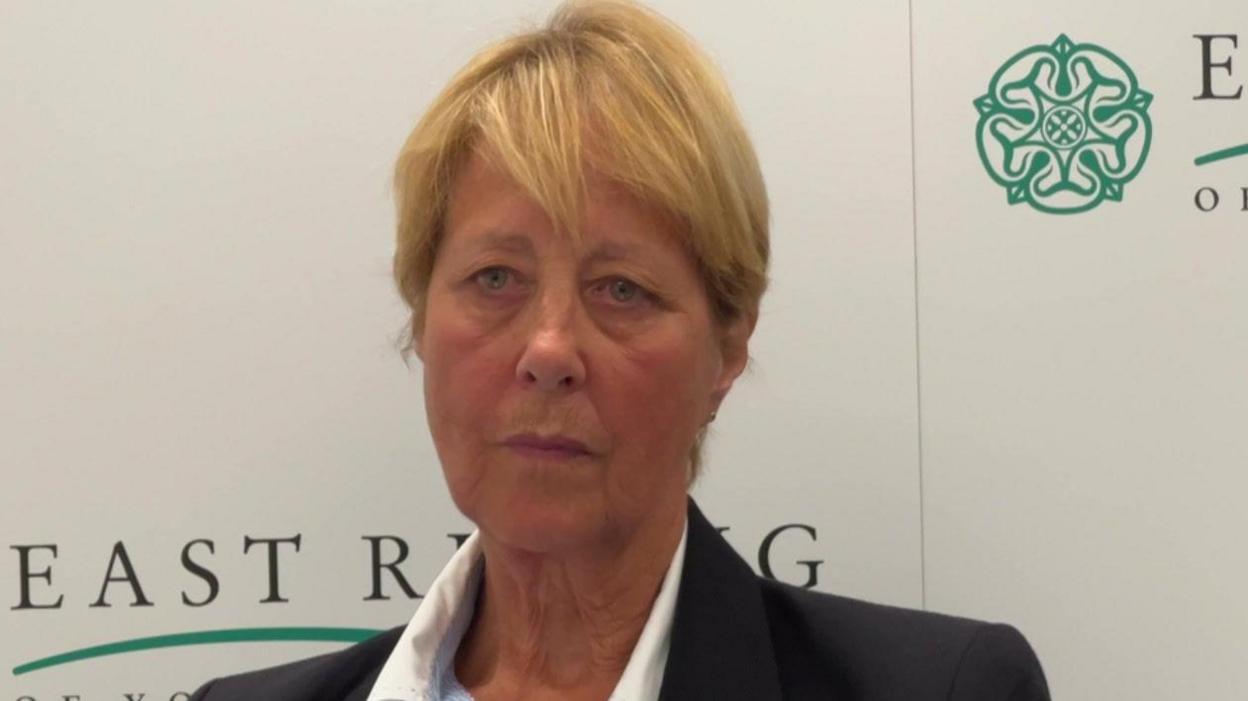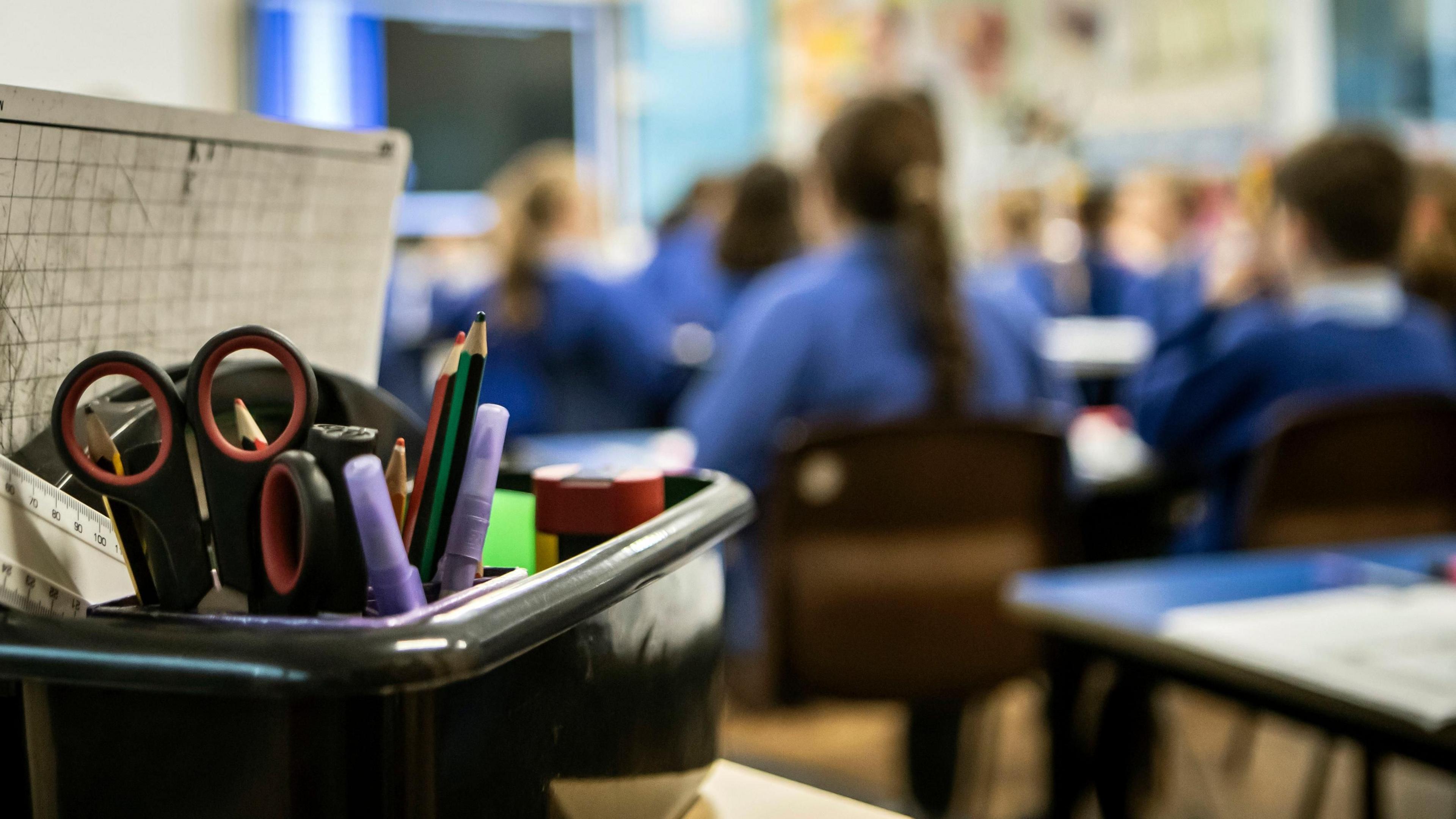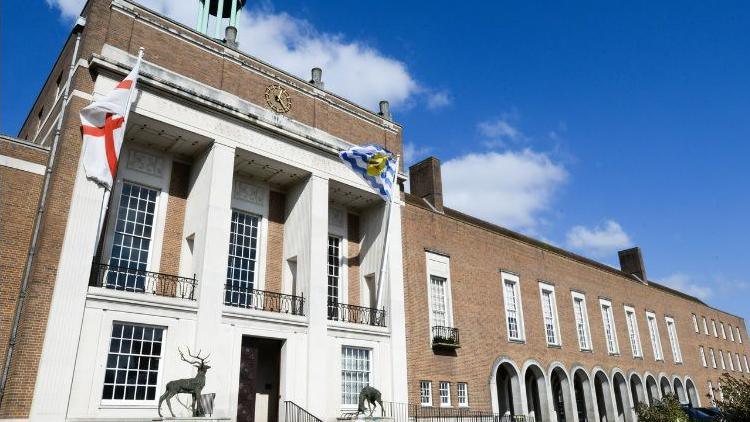Call for action to tackle 'unfair' SEND funding

Councillor Victoria Aitken has criticised the way funding is allocated to councils
- Published
The formula used to determine how much cash is given to councils to deliver support for children with special educational needs and disabilities (SEND) is “unfair", a councillor has claimed.
East Riding of Yorkshire Council (ERYC) said it is the lowest funded local authority for SEND in England.
Councillor Victoria Aitken, portfolio holder for children and young people’s education, health and wellbeing, said: “It’s totally unfair. We need it to change. We need that funding formula to be revisited.”
A Department for Education (DfE) spokesperson said young people with SEND have been "let down by a system that is not working".
They added the situation left parents "too often battling to get their child the support they need and deserve”.
ERYC receives £960 per pupil, compared with Camden Council which receives £3,300, external - the highest-funded authority for SEND.
Aitken said the disparity in funding between authorities is "crazy", adding ERYC would receive an extra £100m per year if it was the top-funded council.
She said there are more than 3,500 young people in the East Riding with an education, health and care plan (EHCP).
“It’s a high number and it's above the national average. It’s causing a huge amount of challenge,” said Aitken.
"The challenge that brings is that a child is needing extra support and yet I don’t have a fair funding formula and a fair funding budget, per child, to actually cover that resource.”
The f40 group, which campaigns for fairer funding for local authorities, said the system is in crisis and warned local authorities are on course to have a cumulative SEND deficit of £5bn by 2026.
They said they want to see a fairer SEND system introduced, with improvements in the way SEND provision is delivered in mainstream schools.
'No magic wand'
Jonny Uttley, the CEO of The Education Alliance, which runs academies in East Yorkshire, said the SEND system is "problematic".
Mr Uttley, also a DfE advisory board member, said some families were disappointed that support is “unaffordable” to schools.
He also said schools need to be more inclusive.
Mr Uttley said: “One of the problems in the system at the moment is the way that schools are measured, they’re compared with each other."
A DfE spokesperson said: “We are committed to improving inclusivity and expertise within mainstream schools, as well as making sure special schools cater to those with the most complex needs.
“There is no ‘magic wand’ to fix these deep-rooted issues immediately, but we have already started and will act as quickly as possible to ensure the best life chances for every child.”
Listen to highlights from Hull and East Yorkshire on BBC Sounds, watch the latest episode of Look North or tell us about a story you think we should be covering here, external.
- Published14 October 2024

- Published14 October 2024

- Published14 October 2024
